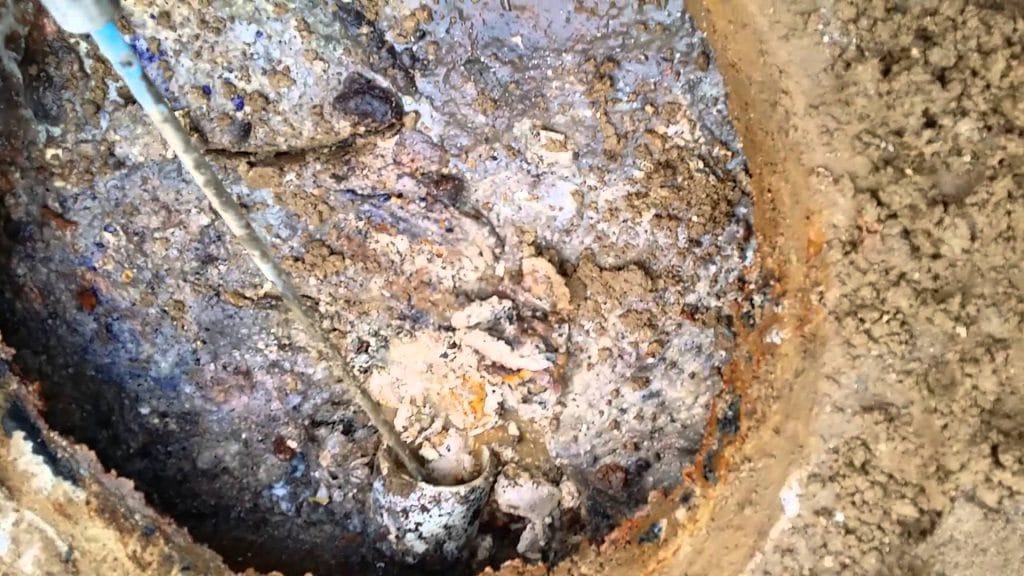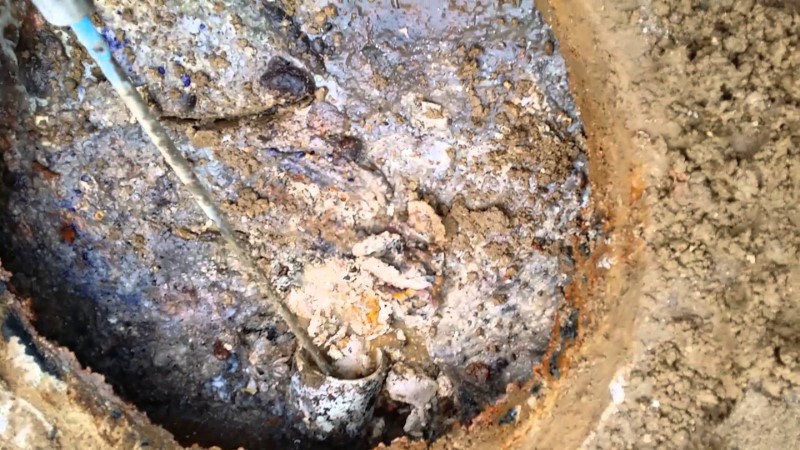
Many factors result to cesspit clogging. Below are some of them:
- Invasive tree roots. Trees need a regular source of nutrients and water. A cesspit has that so their roots grow into the perforations along the sides. The invasive roots damage the cesspit. The cracks allow sediments and rainwater enter the system. These prevent the normal flow of wastewater in the cesspit.
- Improper garbage disposal. Usually, homeowners dump non-biodegradable materials into their drains. When plastic, paint, and grease reach the cesspit, the anaerobic bacteria won’ be able to break them down anymore. They will just stay in the cesspit and clog it.
- Soil compaction. When structures and vehicles are always on your cesspit, the heavy weight crushes the cesspit components, allowing debris to block the flow of wastewater treatment.
- Salt deposits. Experts say that freshwater organisms cannot survive in a saltwater environment. This is applicable to bacteria in your cesspit. When salt from water softeners accumulate in the cesspit, bacteria will die off—both anaerobic and aerobic.
You should determine how salt can clog a cesspit. If your household experiences hard water, you are in constant delay with your washing or cleaning tasks. Hard water makes it very hard for detergents or soaps to lather up. This makes you use more soap, water, electricity, and time. More soap, water, and electricity mean bigger budgets for soap and bills. You also have to wash with several repetitions. This takes a lot of time. Instead of moving on to another task, you spend several hours on just one. When you use more water, you introduce more water into your cesspit. This stirs up the solid particles, delaying their degradation. They float around in the cesspit until thy clog the system. To help solve the hard water problem, homeowners resort to using water softeners. Water softeners have salt or sodium carbonate. Hard water is composed of magnesium and calcium ions that are attracted to the beads in the water softener. Then, they get flushed out of the water supply system. The salt ions then replace the calcium and magnesium ions, making the water soft and usable.
Salt is present in the softened water until it reaches the cesspit. In excessive amounts, salt kills off bacteria. All bacteria survive in an environment that is surrounded by water. When salt is in the liquid environment, the bacteria burst and die because the surrounding fluid in their environment has decreased amounts of water. So, the water molecules suck out the fluid in the bacteria, killing them off. If you have a hard water problem, you should contact your septic expert immediately so that they could give your cesspit additives that will help maintain its optimal condition even if you use water softeners all the time. You should also choose eco-friendly detergents or soaps. Harsh cleaners only kill off bacteria. You could effectively help tone down the depletion of bacteria with these products. Also adhere to your scheduled pump outs so that you will be able to get rid of any accumulated salt residues in the cesspit. This will also give you the chance to lengthen the lifespan of your cesspit. It’s an old fashioned wastewater treatment system but it is very reliable when well cared for.
